STATEHOUSE REPORT | ISSUE 23.44 | Nov. 1, 2024
BIG STORY: Nuclear power in mix again with changes
MORE NEWS: SLED disputes findings of audit on sexual assault kits
LOWCOUNTRY, Ariail: How will we know?
BRACK: Why newspapers endorse candidates
SPOTLIGHT: S.C. Clips
MYSTERY PHOTO: Blowin’ in the wind
FEEDBACK: Send us your thoughts
BIG STORY
Nuclear power in mix again with changes
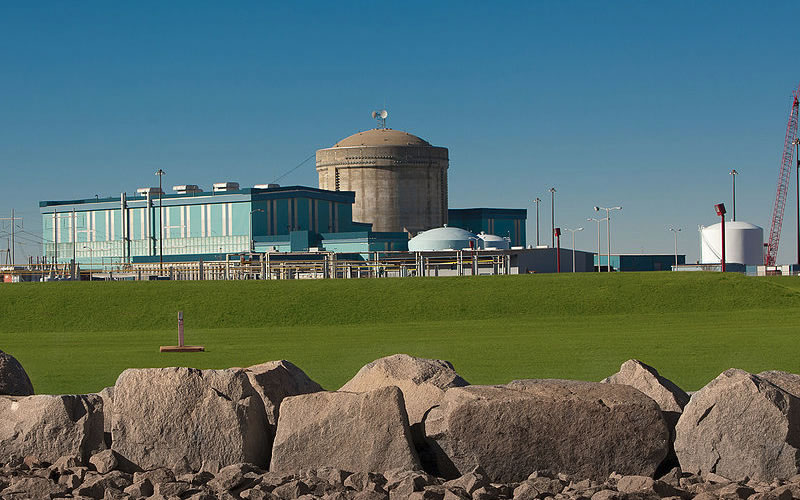
By Jack O’Toole, Capital bureau | To South Carolinians of a certain age, the only thing more surprising than the recent resurgence of interest in nuclear power is that some longtime environmentalists are now among its biggest boosters.
That would have been unthinkable back in 1979 after the partial nuclear meltdown at Three Mile Island and the nuclear accident portrayed in the award-winning movie “The China Syndrome.”
But given the rapid pace of climate change, a growing number of environmental activists argue that nuclear energy, which has carbon emissions even lower than wind and solar power, will have to be part of the solution. That’s why some now even support Microsoft’s plan to restart the Three Mile Island plant as a way to feed its power-hungry Pennsylvania data centers.

“In my view, we have got to acknowledge that we haven’t done what needs to be done to reduce greenhouse gas emissions,” S.C. Coastal Conservation League founder Dana Beach told the City Paper on Oct. 29. “And nuclear is the one big change we can make to accelerate our progress toward a low-carbon future.”
That said, Beach makes it clear that in an ideal world, nuclear power wouldn’t be necessary, because we would never have allowed climate change to reach a level where the mountains of North Carolina now are a part of Hurricane Alley.
After all, the problem of global warming caused by carbon dioxide emissions isn’t new. In fact, it’s been well understood at the highest levels of the U.S. government since at least 1969, when then-Nixon advisor and later U.S. Sen. Daniel Patrick Moynihan explained it in a one-page memo to the president’s domestic policy chief, John Ehrlichman, with the ominous warning, “Goodbye New York. Goodbye Washington, for that matter.”
But after decades of what Beach sees as insufficient action and ongoing resistance from political and utility leaders, he says the state needs to move forward with the second-best solution of new nuclear power facilities.
“The science and math say that we need to make these changes right away, and that means before we get the good-ole-boys extricated from Columbia and the top management ranks in our utilities,” Beach said. “As [former Defense Secretary Donald] Rumsfeld said, we’re going to have to work with the army we’ve got rather than the one we want.”
The army we’ve got
With the nation’s fastest growing population and new industrial users moving into the state seemingly everyday, South Carolina is facing an energy crunch that utility executives say could lead to rolling blackouts within the next decade.
Two state government panels that will play a critical role in addressing that issue met in October to begin charting a path forward that includes new nuclear energy production. Currently, nuclear power provides 52% of the power on S.C.’s grid – the third highest rate in the country.
On Oct. 15, the Governor’s Nuclear Advisory Council presented a report on its recent site visit to the V.C. Summer Nuclear Generating Station, where two partially-built reactors were abandoned in 2017 when the cost of completing the project was deemed prohibitive by the sponsoring utilities, SCANA Corporation and state-owned Santee Cooper. In the scandal that followed, SCANA was sold to Virginia-based Dominion Energy, several of its executives went to prison and ratepayers were saddled with $9 billion in losses.
But according to committee members, there may be reason to believe the project could be restarted.
“We went down there with the assumption that it was going to be a scene of neglect,” Co-chair Jim Little of Fort Mill told the committee. “But we didn’t see anything during our visit that would say [completing the project] would be precluded.”
In fact, the committee’s report found the site to be in “excellent condition,” and recommended a formal study of restarting the project, particularly in light of the successful recent completion of a similar facility in Georgia.
That idea was then taken up Oct. 16 by an S.C. Senate panel charged with producing energy legislation before the legislature reconvenes in January, where it met with mixed support.

“It is just hard for me to believe that a study of sorts hasn’t already been done by Dominion Energy and/or Santee Cooper when they decided to abandon this plant,” said Democratic Sen. Margie Bright Matthews of Walterboro, noting that a possibly redundant study would be a waste of taxpayer money. “That’s just me thinking. Sorry if I sound conservative.”
But Beaufort Republican Sen. Tom Davis argued the proposal merited further consideration.
“The idea that we wouldn’t look at V.C. Summer [reactor] 2, which is 48% complete with $9 billion in the ground … is unfathomable to me,” Davis said. “I don’t understand the sense of reluctance.”

Key to any future discussions, most senators agreed, would be the extent to which large-scale industrial customers were willing to foot some or all of the bill, as Microsoft is doing at Three Mile Island.
“It seems to me, at the very least, that if [industrial use] is a significant reason for the need for more generation, there ought to be more of a financial burden on those facilities than on the residential customers,” Sen. Majority Leader Shane Massey, R-Edgefield, said.
In the end, committee members agreed to include the idea in draft legislative form for further consideration at a future meeting.
The big question: ‘Who pays’
Despite the broad interest in Columbia, energy experts told the City Paper they remain skeptical of restarting the V.C. Summer project, particularly regarding the price tag.
“We’re agnostic on the technology itself, but more concerned on the timeline and cost, and who pays for it,” said Eddy Moore, a greenhouse gas emissions specialist with the Southern Alliance for Clean Energy.
Like Massey, he thinks industrial users such as data centers should have to pick up a significant part of the tab for any new nuclear projects in the state.
“Georgia and South Carolina are ground zero on this issue [of nuclear cost],” Moore said, referring to the Peach State’s recently completed Vogtle nuclear power plant. “We spent $9 billion and got nothing, and they spent $30 billion and got two power plants. Neither one of those is the outcome you want for residential consumers.”
Still, Moore said, nuclear is a near-zero emission option that’s worth considering – especially if the big industrial players who are asking for it are prepared to pay the bill.
“It’s a different picture as long as the risk is not falling on all the ratepayers,” Moore said.
- Have a comment? Send to: feedback@statehousereport.com.
SLED disputes findings of audit on sexual assault kits
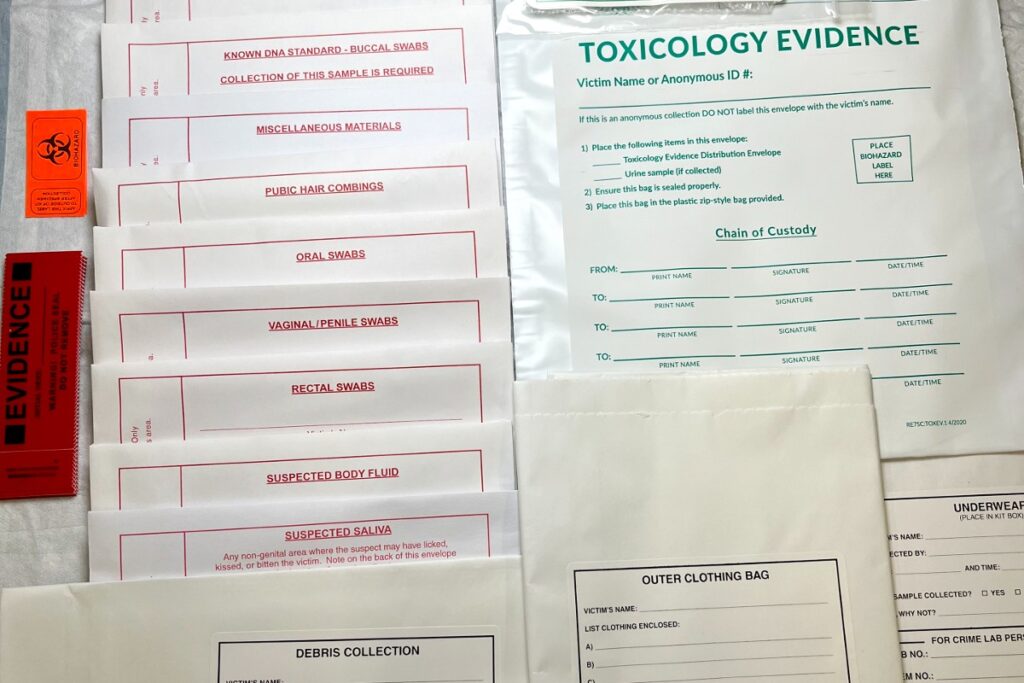
By Jack O’Toole, Capitol bureau | The State Law Enforcement Division (SLED) failed to follow state law and national best practices in its long-delayed implementation of a new sexual assault kit (SAK) tracking system, according to an Oct. 31 report from the S.C. Legislative Audit Council (LAC).
But in a sharply worded 10-page response, SLED Chief Mark Keel slammed what he called the report’s “countless misrepresentations” and claimed that auditors “disregarded important information in order to paint a seemingly predetermined and flawed narrative of SLED’s performance.”
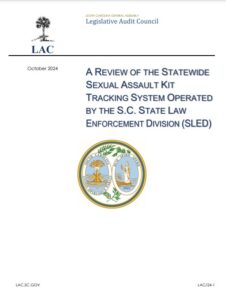 Among the report’s key findings:
Among the report’s key findings:
- SLED failed to meet its legally-mandated June 1, 2022, deadline for implementation, finally bringing the system online on Feb. 20, 2024.
- The Sexual Assault Kit Task Force, a stakeholder body created in September 2020 to guide and assist in the implementation of the new tracking system, has met only twice since its formation.
- SLED’s contract to outsource SAK testing violates state law because it does not require the vendor to participate in the tracking process.
- SLED cannot verify the number of untested kits statewide.
- Testing in S.C. remains highly inefficient, with an average completion time of 457 days compared to 90 days or less in most states.
In its conclusion, the report found that “the current system of investigating sexual assault offenses is inefficient. In the absence of mandated processing and storage times, justice is being delayed or denied for victims, many of whom are under the age of 18.”
In contrast, Keel’s point-by-point rebuttal concludes SLED “successfully implemented” the new tracking system, meeting the law’s “stated intent” to “empower survivors with information, assist law enforcement with investigations and crime prevention, and create transparency and foster public trust.”
- To read the complete report, as well as SLED’s full response, visit the LAC website.
In other recent news
![]() S.C. House Freedom Caucus founder may face federal charges. A federal court filing confirms that federal authorities seized several electronic devices from S.C. Rep. R.J. May, R-Lexington. And they could be used for federal charges, the story says.
S.C. House Freedom Caucus founder may face federal charges. A federal court filing confirms that federal authorities seized several electronic devices from S.C. Rep. R.J. May, R-Lexington. And they could be used for federal charges, the story says.
State panel votes to remove 7 books from S.C. schools. The board’s Instructional Materials Review Committee agreed with agency staff that seven contemporary novels should be removed from classrooms and library shelves, while three classic novels can stay. The recommendations will go for final approval before the full state board on Tuesday.
High court not stopping Moore’s Friday execution. South Carolina death row inmate Richard Moore had more than 20 people, including jurors, a judge and a former prison director, asking Gov. Henry McMaster to spare his life in a clemency petition filed Wednesday, just two days before he was scheduled to die by lethal injection for the 1999 killing of a store clerk. The S.C. Supreme Court has refused to stop the execution.
S.C. among states turning miscarriages, stillbirths into criminal cases. How a person handles a pregnancy loss — and where it occurs — can be the difference between a private medical issue and facing criminal charges.
‘Citizen only’ voting amendment on 2024 S.C. ballot aims to change legal language. South Carolina voters will decide whether a single word should change in the South Carolina constitution to specify that “only” citizens can vote, even though it is already illegal for noncitizens to vote in federal or state elections. In other state election news, early voting continues to break S.C. records, as Dems are on defense in Statehouse races.
Beeple’s Election Night party pokes fun at political theater Beeple’s Election Night party pokes fun at political theater. World-renowned artist Mike Winkelmann, better known as Beeple, will host a wild election Night party at his Daniel Island studio space Nov. 5. It’s sure to be an experience.
S.C.-hired firm has two months left to investigate the mysterious $1.8B. A Washington, D.C., firm continues to comb through 16,000 files and 27 gigabytes of data to find the origins of $1.8 billion in South Carolina tax dollars that sat unidentified and untouched — on paper, at least — for more than five years.
WaterSC holds first meeting to begin work on state water plan. A group tasked with ensuring South Carolina’s most precious resource is accessible and safe for generations to come met for the first time Wednesday in West Columbia.
S.C. to preserve 62,000 acres of forestland in Pee Dee area. More than 62,000 acres of Pee Dee forestland — three times the size of Hilton Head Island — will be preserved for future generations of South Carolinians.
McMaster warns of S.C.’s child welfare system’s future. Gov. Henry McMaster addressed the news of the head of the Department of Social Services, who is stepping down in January, Monday, telling reporters that the future of S.C.’s child welfare system is at a “breaking point.”
How will we know?
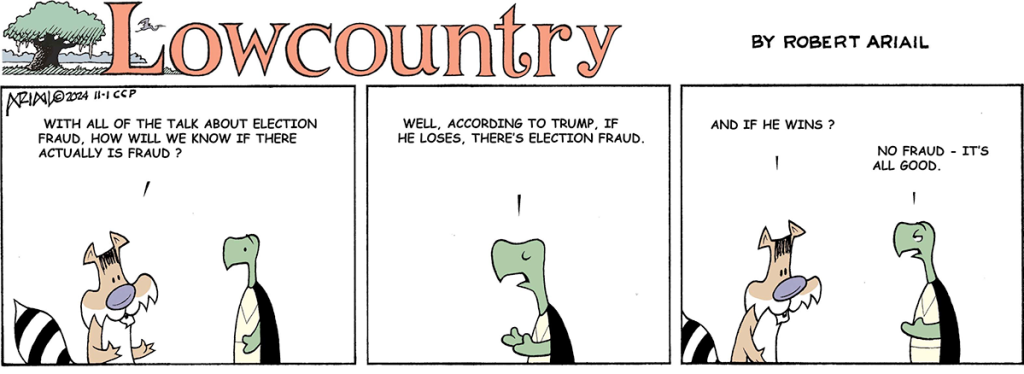
Nationally award-winning cartoonist Robert Ariail always has an interesting take. This week, he takes on the election process, which everyone in America will be attuned to next week.
What do you think … love it or hate it? Did he go too far, or not far enough? Send your thoughts to feedback@statehousereport.com.
Why newspapers endorse candidates
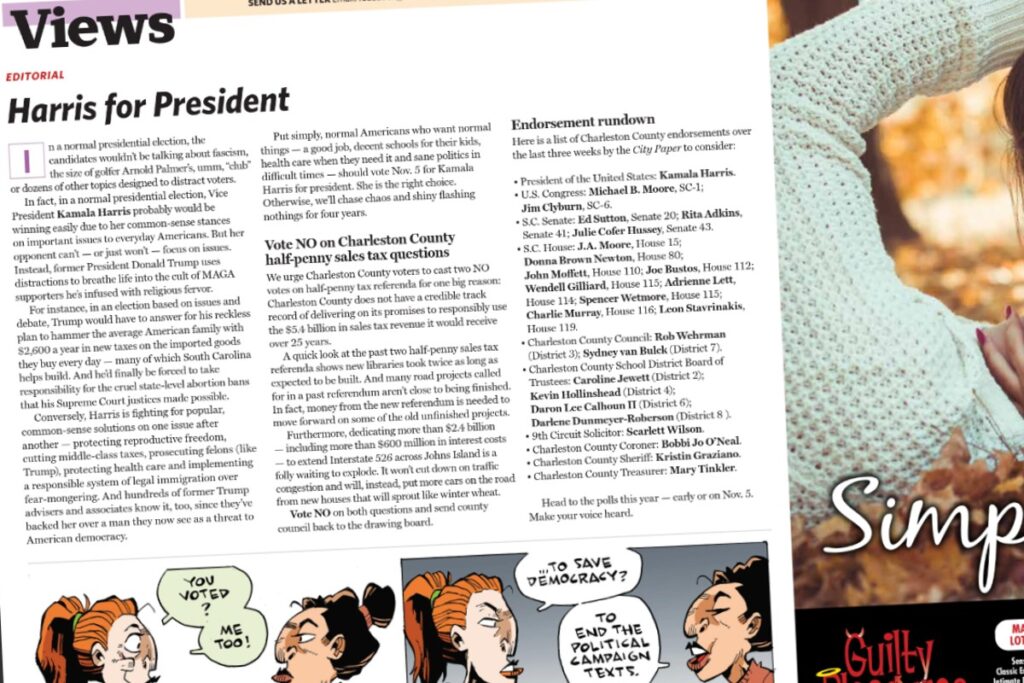
Commentary by Andy Brack | A retired reporter recently wrote something on social media that threw some for a loop:
“A lot of my friends, my true ones, are getting bent out of shape about major newspaper editorial boards choosing not to endorse presidential candidates. As an ex-newspaper guy and longtime fan of journalism and knowing what’s going on in the world, I kind of agree with the decisions not to endorse.”
 To be clear, we wholeheartedly disagree. But let him continue:
To be clear, we wholeheartedly disagree. But let him continue:
“Editorial board endorsements of political candidates, particularly national ones, don’t mean crap, don’t move the needle and only serve to make editorial writers feel more important and powerful than they really are.”
Oh, my. As if editorial writers really feel they have any real power.
What the good ones do feel, actually, has nothing to do with power. They feel an intense social responsibility to democracy and the need to keep it strong. Newspapers endorse candidates to give people unfettered opinions about which candidates in races will be most faithful to democratic ideals and be responsive to constituents – which will do a better job, based on past stories, insights gleaned from interviews and a look at candidate records.
Voters often don’t have time to scroll through pages of documents or mundane campaign position papers. But it’s necessary for good editors to fulfill their watchdog role as the Fourth Estate and keep politicians running for office honest.
They need to make cogent arguments whether someone who has been in office for many years needs to stay or go. They need to call out a fascist when the jackboot fits. They need to analyze the political environment and share informed views on why one path for the state or nation is better than another.
Editorials matter. To fail to meet the social responsibility of endorsing candidates and giving cogent insights about what’s happening in the political world is to fail to give important tools to voters as they make judgments about which candidates to support. If we’ve heard it once, we’ve heard it countless times – voters saying they support a candidate, not the party. And while this does not seem to reflect reality for many voters, it does for discerning ones.
The good thing about an editorial opinion is that a voter can ignore it. Just as they could – and should – ignore all of the misinformation, disinformation, lies, fake news and more that infects social media. In fact, the rise of social media is the primary culprit in America’s increasing polarization and tribalism. Listening to only one side of an argument is never a good thing in a democracy. And conflating viewpoints as if they are news is no better – the editorial page is specifically an opinion section, although more and more readers don’t seem to understand that.
What is good for democracy is for informed information gatherers – editorial writers – to do their jobs, vetting candidates and calling it like they see it.
More newspapers need editorial pages. More newspapers need to endorse candidates, not fewer. More newspapers need to have courage, instead of losing it to the billionaire behemoths of private enterprise that now own outlets like The Washington Post and the Los Angeles Times.
Otherwise they will become less relevant by doing the very thing that they’re not supposed to do – muzzling themselves.
The Washington Post has made a big deal about how “democracy dies in darkness.” But after refusing to shine a bright light on the choice voters face in the 2024 presidential race, it might want to change its slogan to “The Washington Post dies in its own darkness.”
Andy Brack is editor and publisher of Statehouse Report and the Charleston City Paper. Have a comment? Send to: feedback@charlestoncitypaper.com.
S.C. Clips
 Statehouse Report is brought to you weekly at no cost thanks to our underwriters. In the spotlight today is SC Clips, an affordable, daily information digest that provides you with the South Carolina news you need every business day. Subscribers receive a daily email news round-up before 10 a.m. that provides a link to each day’s edition of SC Clips.
Statehouse Report is brought to you weekly at no cost thanks to our underwriters. In the spotlight today is SC Clips, an affordable, daily information digest that provides you with the South Carolina news you need every business day. Subscribers receive a daily email news round-up before 10 a.m. that provides a link to each day’s edition of SC Clips.
Each issue (click for sample) provides a concise summary of dozens of the latest newspaper and television reports of news with statewide impact, politics, business and local stories. Readers also are linked to key opinions by South Carolina’s editorial writers.
- Learn more about this great news service that will save you time — which saves you money.
- Get a trial run at no cost.
[button] MYSTERY PHOTO [/button]
Blowin’ in the wind
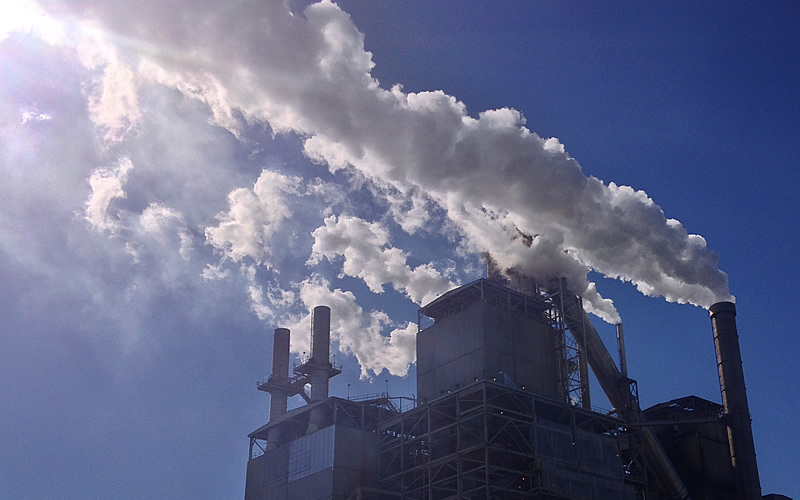
What is this and why would we have it this week as a mystery photo? Send your name, hometown and guess to: feedback@statehousereport.com.
 Last week’s mystery, “Old stores,” showed businesses in Anderson, S.C., on Church Street, which Texas photo sleuth Allan Peel said was a thriving center for African American commerce for eight decades ending in the 1970s. Buildings include a warehouse that later was used as a grocery, an old theater that closed in 1925 and reopened as a furniture store and another furniture store.
Last week’s mystery, “Old stores,” showed businesses in Anderson, S.C., on Church Street, which Texas photo sleuth Allan Peel said was a thriving center for African American commerce for eight decades ending in the 1970s. Buildings include a warehouse that later was used as a grocery, an old theater that closed in 1925 and reopened as a furniture store and another furniture store.
Others who identified the photo were: Bill Segars of Hartsville; George Graf of Palmyra, Va.; Pat Keadle of Perry; and Jay Altman and Elizabeth Jones, both of Columbia.
- Send us a mystery picture. If you have a photo that you believe will stump readers, send it along (but make sure to tell us what it is because it may stump us too!) Send to: feedback@statehousereport.com and mark it as a photo submission. Thanks.
Send us your thoughts
We encourage you to send in your thoughts about policy and politics impacting South Carolina. We’ve gotten some letters in the last few weeks – some positive, others nasty. We print non-defamatory comments, but unless you provide your contact information – name and hometown, plus a phone number used only by us for verification – we can’t publish your thoughts.
- Have a comment? Send your letters or comments to: feedback@statehousereport.com. Make sure to provide your contact details (name, hometown and phone number for verification. Letters are limited to 150 words.
ABOUT STATEHOUSE REPORT
Statehouse Report, founded in 2001 as a weekly legislative forecast that informs readers about what is going to happen in South Carolina politics and policy, is provided to you at no charge every Friday.
- Editor and publisher: Andy Brack, 843.670.3996
- Statehouse bureau chief: Jack O’Toole
Donate today
We’re proud to offer Statehouse Report for free. For more than a dozen years, we’ve been the go-to place for insightful independent policy and political news and views in the Palmetto State. And we love it as much as you do.
But now, we can use your help. If you’ve been thinking of contributing to Statehouse Report over the years, now would be a great time to contribute as we deal with the crisis. In advance, thank you.
More
- Mailing address: Send inquiries by mail to: P.O. Box 21942, Charleston, SC 29413
- Subscriptions are free: Click to subscribe.
- We hope you’ll keep receiving the great news and information from Statehouse Report, but if you need to unsubscribe, go to the bottom of the weekly email issue and follow the instructions.
- Read our sister publication: Charleston City Paper (every Friday in print; Every day online)
- © 2024, Statehouse Report, a publication of City Paper Publishing, LLC. All rights reserved.


